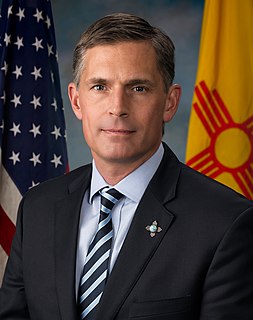A Quote by Stephen Hawking
We are entering an increasingly dangerous period of our history. But I'm an optimist.
Related Quotes
The goal of any worthwhile and effective journal of opinion analysis in navigating what is an increasingly tribal and divisive period in American history should be to promote real debate. That does not mean retreating to our corners and pretending that, if we ignore the perspectives we don't like, they will magically go away.
I do feel that the world is entering into a period of the incredible period of reflection and introspection. A lot of people are questioning the future, and I can't help but think that's a positive thing. I'm not sure about the art world, but the design world may be able to offer some solutions. Design is about troubleshooting. As a designer, I ultimately feel like a gun for hire. Companies hire me because they've got a problem. That's kind of what it boils down to. And I think this is a moment in our history where we need different solutions.
The optimist sees a light at the end of the tunnel, the realist sees a train entering the tunnel, the pessimist sees a train speeding at him, hell for leather, and the machinist sees three idiots sitting on the rail track. "The optimist proclaims that we live in the best of all possible worlds; the pessimist fears this is true."
The history of lead is a history of neglect. It's a history of decisions on our part not to address the broad implications of what we did to ourselves during the industrial revolution and in the first part of the century when our cities expanded broadly, when we built our housing and we began to depend upon lead as a mainstay of our new industrial culture. We put this stuff in even though we knew it was dangerous, we knew it was going to hurt kids.
An optimist is neither naive, nor blind to the facts, nor in denial of grim reality. An optimist believes in the optimal usage of all options available, no matter how limited. As such, an optimist always sees the big picture. How else to keep track of all that’s out there? An optimist is simply a proactive realist.
And what terrifies me is that we're entering a phase where if you start to speak about this as something that can be understood historically - without any sympathy - you are going to be thought of as unpatriotic, and you are going to be forbidden. It's very dangerous. It is precisely incumbent on every citizen to quite understand the world we're living in and the history we are a part of and we are forming as a superpower.
For the system of government you fashioned including the very principles on which you based it, is increasingly obsolete, and hence increasingly, if inadvertently, oppressive and dangerous to our welfare. It must be radically changed and a new system of government invented, a democracy for the 21st century. For this wisdom, above all, I thank Mr. Jefferson who helped create the system that served us so well for so long, and that now must, in its turn, die and be replaced.
Economist Frederick Thayer has studied the history of our balanced-budget crusades and has come up with some depressing statistics. We have had six major depressions in our history (1819, 1837, 1857, 1873, 1893 and 1929); all six of them followed sustained periods of reducing the national debt. We have had almost chronic deficits since the 1930s, and there has been no depression since then - the longest crash-free period in our history.





































